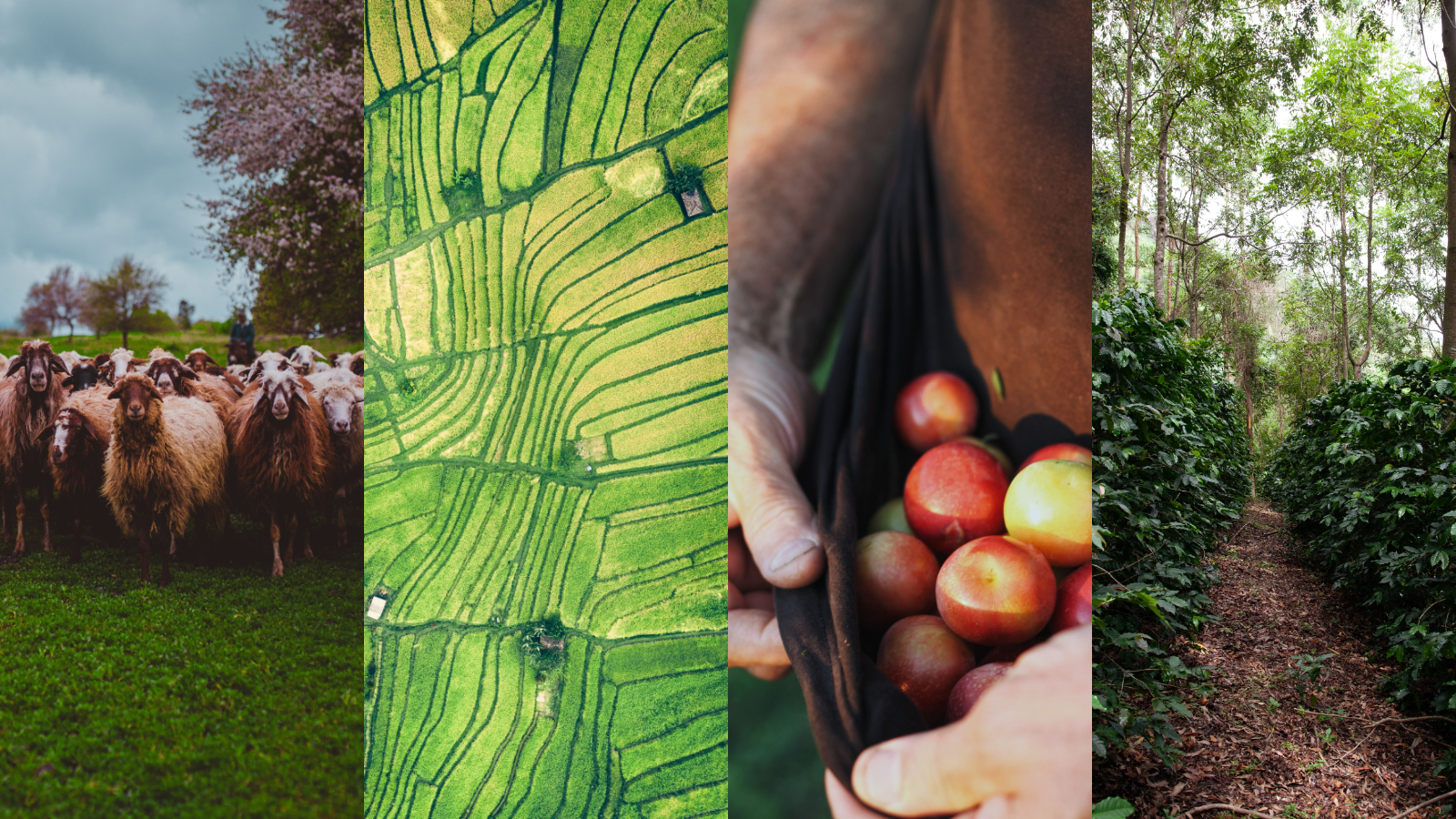Integrated agriculture

What’s the Difference between Integrated, Sustainable, Organic and Regenerative Agriculture?
Again and again we are asked at trade fairs what the difference between the forms of agriculture actually is, whether or not they partly overlap and where Humintech is to be situated with its products.
Doing things sustainably means preserving for the long-term – no matter how
Sustainable agriculture aims to maintain the conditions for farming in the long-term. This means that humus content and habitats in the soil are preserved, that the climate, water and air are not polluted and that biodiversity is protected. Since 2001, the European Initiative for Sustainable Development in Agriculture (https://leaf-eisa.frb.io/) has been in existence, bringing together agricultural organizations from the seven countries of France, England, Germany, Hungary, Luxembourg, Sweden and the Netherlands, and cooperating with five lobbying organizations in the fields of animal feed, fertilizers, animal welfare, plant protection and environmental protection. The aim is to establish, strengthen and further develop sustainable agriculture through the integrated approach in Europe.
Integrated farming summarizes practices that combine conventional and organic farming in an environmentally protective manner. This means, for example, that chemical pesticides are still used but only when there is high infestation pressure – before that, biological means are used. Environmentally friendly inputs and methods are generally preferred. The very strict conditions that apply to an organic farm can result in crop losses that a conventional farm cannot afford. Therefore, in an emergency, conventional means and methods can be used so that the increased effort is not offset by a lower yield. The focus on species-appropriate animal husbandry and targeted environmental protection measures is also part of integrative agriculture.
Is organic the same as regenerative agriculture?
Organic farming is also sustainable but it is bound by strict regulations. In Europe, this is the EU regulation on organic farming. The regulation includes bans on additives, rules for the correct naming and marketing of products, and much more. Organic farming is about keeping cycles as small as possible. Therefore, the feed for the livestock almost always comes from the farm itself or nearby and the manure is composted on site and used to fertilize the fields.
While organic farming is largely defined by general action maxims and goals, regenerative agriculture is results-oriented. Not only should the balance in the ecosystem be maintained, but in particular more CO2 should be bound in the soil than is released – a carbon sink is the goal. Thus, agriculture seeks negative emissions and, when practiced on a large scale, could not only halt but reverse climate change. Restorative or regenerative agriculture is based on the principle of efficient humus buildup. In this context, one also speaks of climate farmers.
The difference lies in practice
However, to reduce regenerative agriculture to carbon storage alone would ignore many important aspects associated with humus buildup: The prevention of erosion, improved water-holding capacities, permanent enhancement of soil life, and crop security, for example.
Regenerative practices include reduced tillage, associated permanent rooting and permanent mulch layer, and the two key points of "promoting biodiversity" and "integrating animals". This refers, for example, to (syntropic) agroforestry systems that bring together different crops, biotopes and livestock on the same field, thereby generating synergyistic effects.
Who will pay for my conversion to regenerative farming?
A European organization that provides financial and substantial support for farmers to switch to regenerative practices, measure them and share the knowledge is Climate Farmers (https://www.climatefarmers.org/).
There are several other organizations around the world with similar goals:
Those farming in Australia can be helped by Friendly Farms to transition to regenerative agriculture (friendlyfarms.org.au/), North American farmers can find like-minded people and support at Regenefied (regenified.com) and farms across the Southern Hemisphere are already transitioning to regenerative agriculture with the help of Renature (www.renature.co) - definitely worth a look for farmers in Africa, Asia, the Orient and South America!
So are Humintech products suitable for integrated, organic or regenerative farming?
Yes. Three times yes. Biostimulants are neither fertilizers nor pesticides and are therefore subject to separate regulations. Almost all of our products are certified for organic farming and thus meet the highest quality standards for inputs. By definition, they are also regenerative, actively building soil life, balancing imbalances, enabling the highest possible natural biodiversity below and above ground, reducing emissions of greenhouse gases and leaching of nutrients. They are ideal if you are in the conversion phase and want to take fewer risk, just as they can ensure conventional farms the highest possible harvests.
You can find more information on our website and in a personal consultation.
1. Photo by Ivan Bandura on Unsplash
2. Photo by Vruyr Martirosyan on Unsplash
3. Photo by CAFÉ GATO-MOURISCO on Unsplash
4. Photo by Zeynep Sümer on Unsplash

